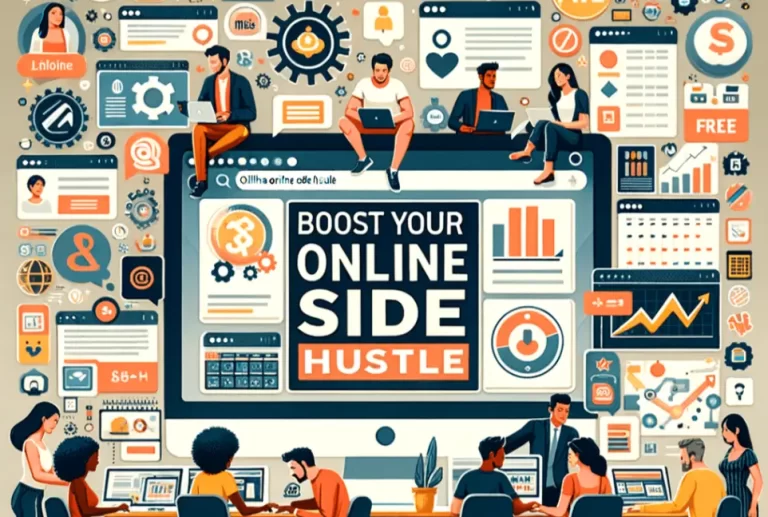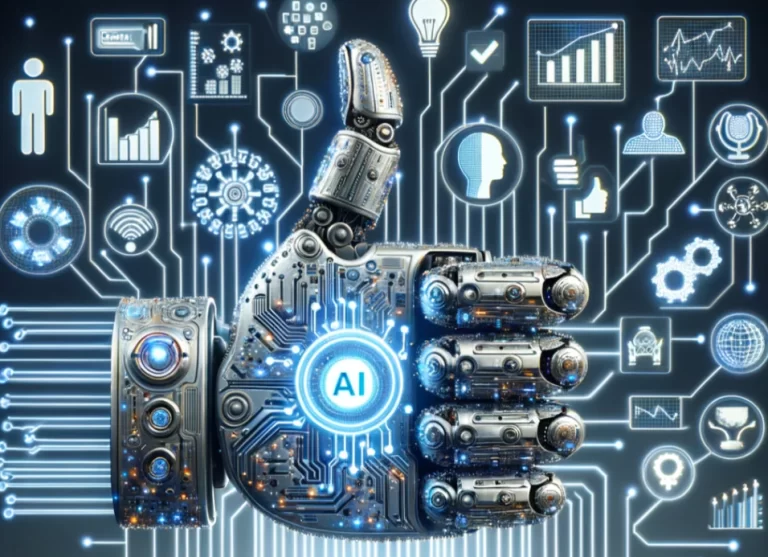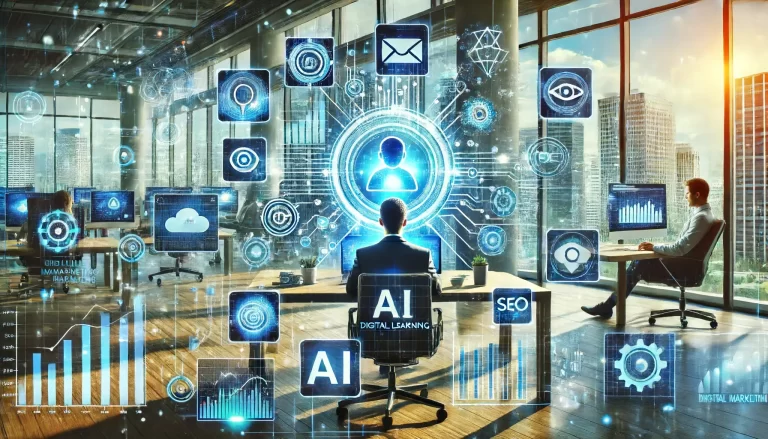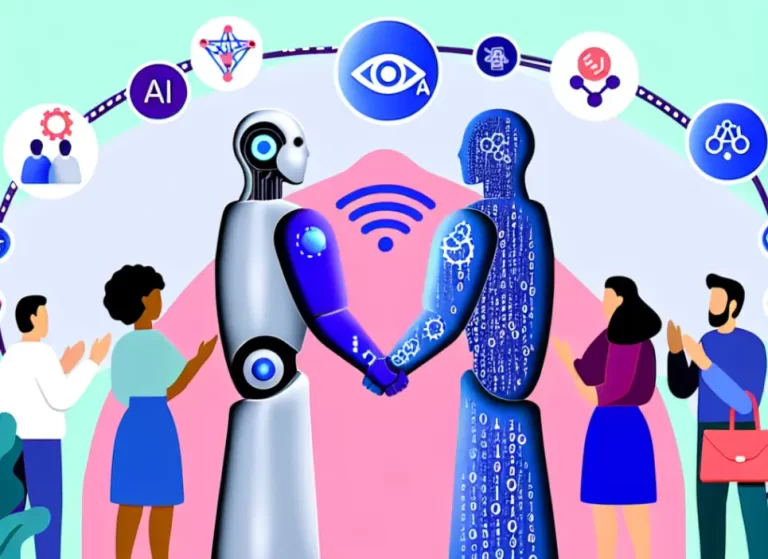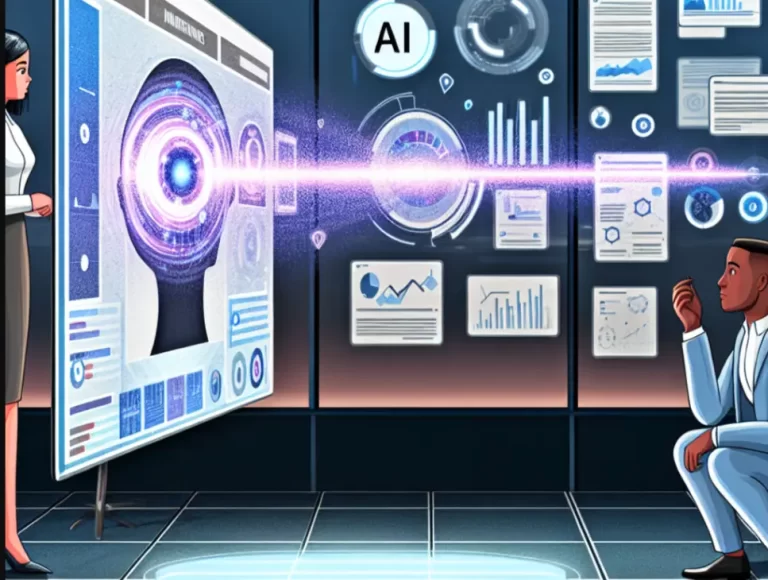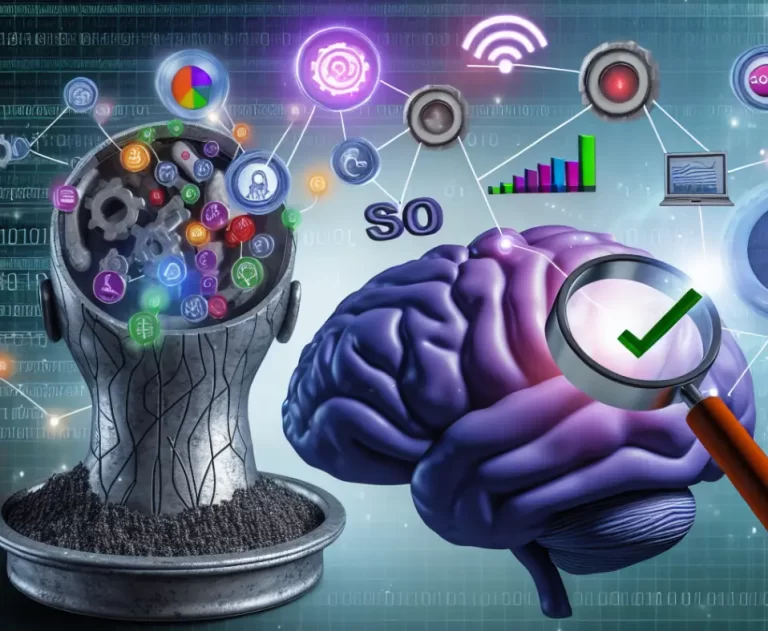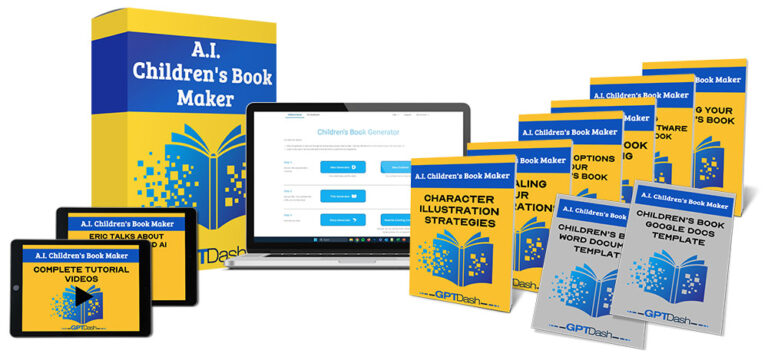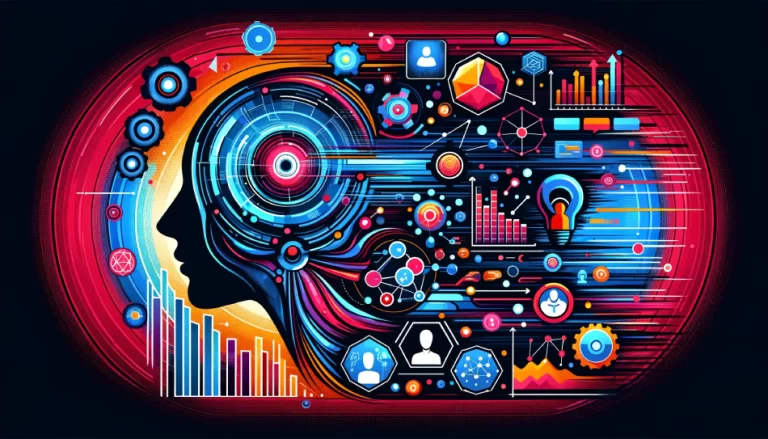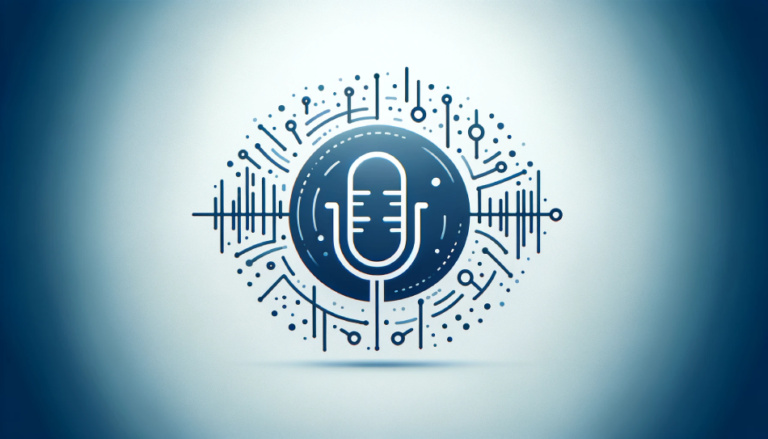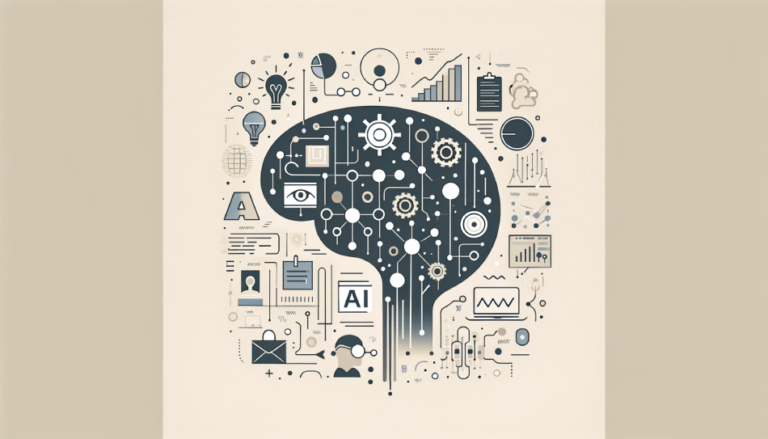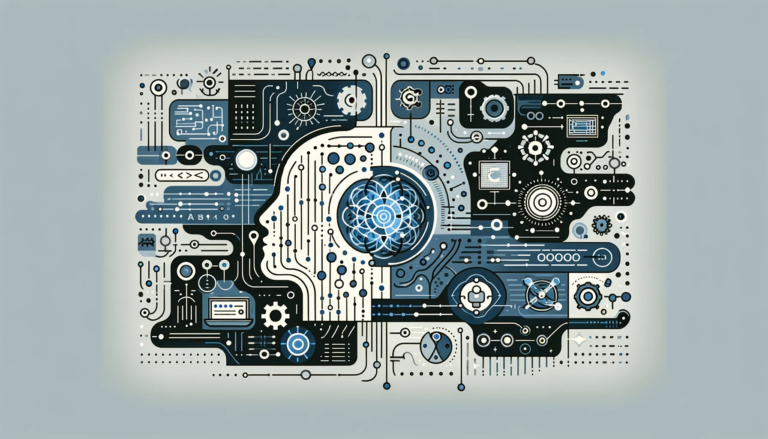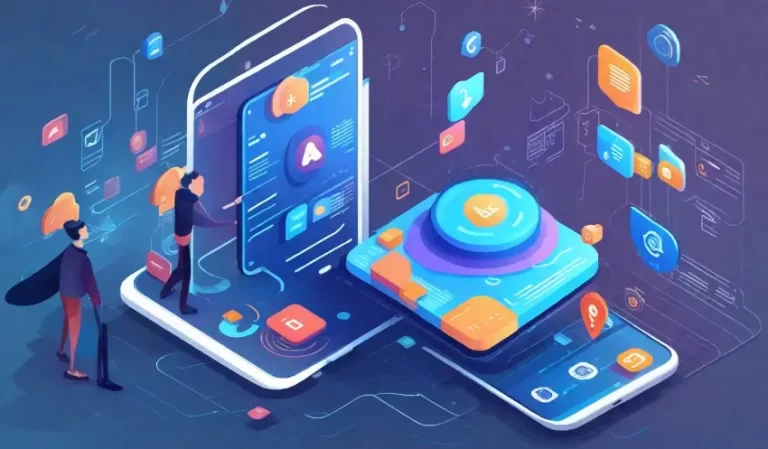Maximizing ROI with AI in Digital Marketing
Have you ever wondered how you can get more bang for your buck in digital marketing? If so, you’re in the right place. Today, we’re diving into the exciting world of maximizing your Return on Investment (ROI) using Artificial Intelligence (AI) in digital marketing. Trust me, it’s a game-changer.
First things first, what exactly is ROI? Simply put, it’s the measure of the profit earned from every dollar spent. In the digital marketing world, this means figuring out how to get the most value from your marketing activities. Sounds simple, right? But with a myriad of channels and strategies out there, it can get a bit complicated. That’s where AI comes in to save the day.
Why AI is a Big Deal
AI isn’t just some sci-fi buzzword; it’s a powerful tool that’s transforming the way businesses operate, especially in marketing. Think of AI as your marketing sidekick, tirelessly working behind the scenes to analyze data, predict trends, and personalize content. This means you can make smarter decisions, faster, and with more confidence.
Imagine having a personal assistant who’s always on top of the latest marketing trends, knows your audience inside out, and can predict what they want even before they do. Sounds like a dream, right? Well, that’s the magic of AI. It takes the guesswork out of your marketing strategy and helps you focus on what really matters – creating value and driving growth.
The Benefits of AI in Digital Marketing
So, why should you care about AI? Here are some compelling reasons:
- Efficiency: AI automates routine tasks like data analysis and reporting, freeing up your time to focus on creative and strategic work.
- Precision: With AI, you can target your audience with pinpoint accuracy, ensuring your marketing efforts are hitting the right people at the right time.
- Personalization: AI can analyze vast amounts of data to deliver highly personalized experiences to your customers, improving engagement and conversion rates.
- Scalability: Whether you’re a small business or a large enterprise, AI scales with you, adapting to your growing needs and helping you stay competitive.
Getting Started with AI
Alright, you’re probably thinking, “This all sounds amazing, but where do I start?” Don’t worry, we’ve got you covered. In this guide, we’ll walk you through the basics of understanding ROI in digital marketing, explore the role of AI, and introduce you to some killer AI-powered tools that can help skyrocket your ROI.
We’ll also share some practical strategies for implementing AI in your marketing campaigns, so you can start seeing results sooner rather than later. And just to keep things interesting, we’ll throw in some real-world case studies of businesses that have successfully harnessed the power of AI.
So, buckle up and get ready to embark on an exciting journey into the future of digital marketing. With AI by your side, maximizing ROI has never been easier or more fun!
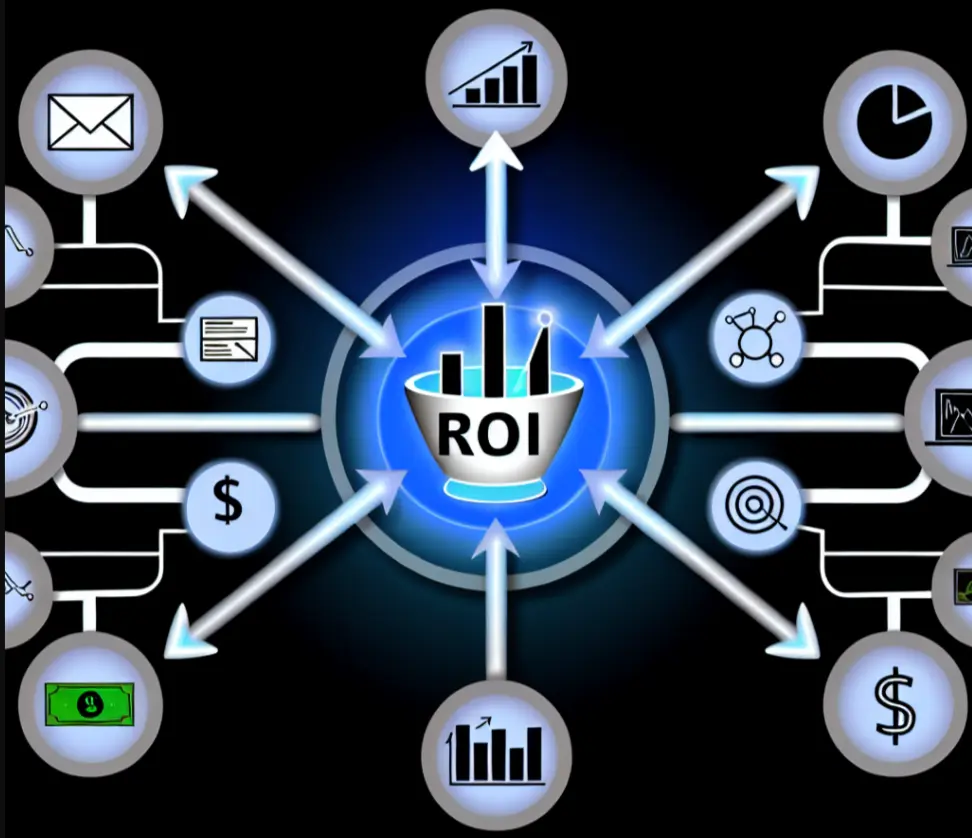
Understanding ROI in Digital Marketing
Let’s dive into the world of digital marketing and chat about something crucial: ROI, or Return on Investment. Understanding ROI is like having a compass for your digital marketing adventures—it helps you navigate through the vast ocean of strategies and tactics to find what truly works for your brand.
What is ROI?
Simply put, ROI measures the profitability of your marketing efforts. It’s a way to see if the money you’re putting into your campaigns is paying off. Think of it as the ultimate scorecard for your marketing activities. You want to know if your investment is bringing back more than just smiles and high-fives, right?
Calculating ROI
Calculating ROI might sound like a daunting task, but it’s actually pretty straightforward. Here’s a basic formula to get you started:
ROI = (Net Profit / Cost of Investment) x 100
So, if you spent $1,000 on a campaign and earned $5,000 in revenue, your net profit would be $4,000. Plugging these numbers into the formula would give you an ROI of 400%. Not too shabby, right?
Why is ROI Important?
ROI matters because it gives you a clear picture of what’s working and what’s not. It’s like getting feedback from a wise old mentor who tells you where to focus your efforts to achieve the best results. Here are a few reasons why understanding ROI is essential:
- Informed Decisions: Knowing your ROI helps you make smart, data-driven decisions. Should you allocate more budget to social media ads or focus on email marketing? Let ROI be your guide.
- Budget Justification: When talking to stakeholders or higher-ups, ROI can be your best friend. It provides tangible proof of the value your marketing campaigns bring, making it easier to justify your budget requests.
- Optimization: Understanding ROI allows you to continuously improve your campaigns. By identifying what’s driving the most return, you can tweak and optimize your strategies for even better results.
Common Challenges in Measuring ROI
Of course, measuring ROI isn’t always sunshine and rainbows. There are a few challenges you might face along the way:
- Attribution: In a multi-channel world, it can be tricky to attribute revenue to a specific campaign or touchpoint. Did that sale come from a Google ad, an email newsletter, or a social media post?
- Time Frame: ROI isn’t always immediate. Some campaigns, like content marketing, may take months to show significant returns. Patience is key!
- Data Quality: Accurate ROI measurement depends on reliable data. Make sure your tracking tools and analytics are set up correctly to avoid misleading results.
Tips for Better ROI Measurement
Ready to become an ROI pro? Here are some tips to help you measure ROI more effectively:
- Set Clear Goals: Define what success looks like for each campaign. Are you aiming for more leads, higher sales, or increased brand awareness?
- Use the Right Tools: Invest in analytics and tracking tools that provide accurate data. Google Analytics, HubSpot, and other marketing platforms can be incredibly helpful.
- Regularly Review and Adjust: ROI isn’t a set-it-and-forget-it metric. Continuously monitor your campaigns and be ready to adjust your strategies based on the data.
Understanding ROI is a game-changer for any digital marketer. By keeping a close eye on your return on investment, you can ensure that your marketing efforts are not just busywork but are genuinely driving your business forward. Happy marketing!
The Role of AI in Digital Marketing
Ready to dive into the fascinating world of AI in digital marketing? Let’s get started. Artificial Intelligence (AI) is creating quite the buzz, not just as a tech marvel but as a game-changer in the marketing realm. It’s not just for the Silicon Valley elite; AI is accessible and beneficial for businesses of all sizes. From automating mundane tasks to unearthing deep insights, AI is reshaping how we approach digital marketing. So, what’s the deal? Let’s break it down.
Targeted Advertising
First off, let’s talk about targeted advertising. Remember the days of casting a wide net and hoping for the best? Those days are swiftly fading. AI algorithms can analyze vast amounts of data to create precise audience segments. This means your ads reach the right people at the right time, resulting in higher engagement and conversions.
Content Creation and Curation
Creating content can be a daunting task, but here’s where AI steps in as your trusty sidekick. AI can help generate content ideas based on trending topics and audience preferences. Tools like GPT-3 assist in drafting articles, social media posts, and even video scripts. Plus, AI-driven curation tools can sift through oceans of content to find the gems that resonate most with your audience, saving you both time and effort.
Personalization
Let’s face it, we all love a personal touch. AI excels at delivering personalized experiences by analyzing user behavior, preferences, and past interactions. Whether it’s personalized emails, product recommendations, or tailored website experiences, AI ensures each user feels like you’re speaking directly to them, enhancing loyalty and engagement.
Predictive Analytics
Imagine having a crystal ball that predicts future trends and behaviors. That’s essentially what predictive analytics offers. AI can analyze historical data to forecast future customer actions, helping you tweak your strategies proactively. This helps in efficient budget allocation, campaign planning, and even in product development.
Chatbots and Customer Service
Ever had a question at 3 AM and found instant help through a website’s chat feature? That’s AI at work! Chatbots powered by AI can handle a multitude of customer queries around the clock. They can provide instant responses, guide users through the sales funnel, and even handle complaints, ensuring a seamless customer experience without human intervention.
SEO Optimization
Search Engine Optimization (SEO) can be a bit of a moving target, but AI brings some stability. AI tools can analyze search engine algorithms and user behavior to provide actionable insights for improving your website’s SEO. From keyword suggestions to content optimization, AI helps ensure your site ranks better and attracts more organic traffic.
Sentiment Analysis
Understanding how your audience feels about your brand is crucial. AI-powered sentiment analysis tools scan social media, reviews, and other online content to gauge public sentiment. This helps you understand the emotional tone behind customer interactions, allowing you to respond appropriately and make data-driven decisions.
Pretty cool, right? AI is not just a futuristic concept; it’s here, and it’s transforming digital marketing as we know it. By leveraging AI, you’re not just keeping up with the competition; you’re setting the pace. So, embrace the change, and let AI help you push the boundaries of what’s possible in digital marketing!
AI-Powered Tools for Enhancing ROI
Ready to dive into the magic of AI-powered tools that can skyrocket your ROI? Great, because we’re about to embark on an exciting journey through some of the most innovative tools out there that can transform your digital marketing efforts. Let’s get started!
1. Chatbots and Conversational AI
First up, we have chatbots. These AI-powered conversational agents can handle customer queries 24/7, providing instant responses and ensuring your audience never feels neglected. By automating customer service, chatbots reduce operational costs and improve customer satisfaction, both of which can significantly boost your ROI.
- Instant Response: No more waiting times for customers!
- Cost Efficiency: Reduce the need for a large customer service team.
- Personalization: Offer tailored recommendations based on user interactions.
2. Predictive Analytics
Predictive analytics is a powerhouse when it comes to optimizing your ROI. By analyzing historical data, AI can forecast future trends and customer behaviors. This allows you to make data-driven decisions, such as which products to promote or when to launch a campaign.
- Targeting: Identify high-value customers more effectively.
- Timing: Launch campaigns at the most impactful times.
- Resource Allocation: Optimize your budget for maximum return.
3. Content Generation Tools
Creating engaging content is a breeze with AI-powered content generation tools. These tools can help you craft compelling copy, generate blog posts, and even create personalized email campaigns. By automating content creation, you save time and ensure consistency, which can enhance your brand’s presence and ROI.
- Efficiency: Produce high-quality content quickly.
- Consistency: Maintain a uniform brand voice across all platforms.
- Personalization: Tailor content to different segments of your audience.
4. Social Media Analytics
Social media is a goldmine for insights, and AI-powered social media analytics tools can help you dig deep. These tools monitor engagement, sentiment, and trends across platforms, providing you with actionable data to refine your social media strategy.
- Engagement Tracking: See what types of posts resonate most with your audience.
- Sentiment Analysis: Understand how people feel about your brand.
- Trend Identification: Stay ahead of the curve with emerging trends.
5. Programmatic Advertising
Last but definitely not least, programmatic advertising uses AI to automate the buying and placement of ads in real-time. This means your ads are shown to the right people at the right time, maximizing efficiency and reducing wasteful spending.
- Precision Targeting: Reach your ideal audience with laser accuracy.
- Real-Time Bidding: Optimize ad spend dynamically.
- Performance Tracking: Continuously monitor and adjust campaigns for the best results.
So, there you have it! These AI-powered tools are your allies in the quest to enhance your ROI. By integrating them into your digital marketing strategy, you’ll not only streamline your processes but also ensure that every dollar spent is working as hard as it possibly can. Ready to give them a try?
Strategies for Implementing AI in Your Marketing Campaigns
Alright, let’s dive into the nitty-gritty of how you can smartly incorporate AI into your marketing campaigns. Whether you’re a seasoned marketer or just getting your feet wet, these strategies will help you harness the power of AI to boost your return on investment (ROI).
1. Start with Clear Objectives
First things first, you need to know what you’re aiming for. Set clear and measurable objectives for your AI-driven campaigns. Are you looking to increase your website traffic, boost conversions, or improve customer engagement? Clear goals will help you choose the right AI tools and strategies to meet those targets.
2. Leverage Predictive Analytics
Predictive analytics is like having a crystal ball for your marketing efforts. AI can analyze vast amounts of data to predict future trends and customer behaviors. Use this insight to tailor your campaigns more effectively, targeting the right audience at the right time.
3. Personalize Customer Experiences
Personalization is king. Use AI to create hyper-personalized experiences for your customers. From personalized email campaigns to customized content recommendations on your website, AI can help you engage with your audience on a more intimate level. Remember, the more relevant your content, the higher the engagement rate.
4. Automate Routine Tasks
AI can take over the repetitive tasks that eat up your time. Think chatbots for customer service, automated email marketing, and even social media posting. By automating these routine tasks, you free up your team to focus on more strategic efforts, ultimately enhancing productivity and ROI.
5. Optimize Ad Spend
Running paid ads? AI can help you get the most bang for your buck. Using machine learning algorithms, AI can analyze which ads are performing best and automatically adjust your budget allocation. This ensures your money is spent where it will have the most impact.
6. Implement A/B Testing
A/B testing isn’t new, but AI can supercharge this process. Instead of manually setting up tests and waiting for results, AI can continuously run A/B tests and optimize in real-time. This means faster iterations and more effective campaigns.
7. Use AI for Content Creation
Believe it or not, AI can even help with creating content. From generating blog post ideas to writing social media captions, AI tools can assist in producing engaging content that resonates with your audience. This can be particularly useful for scaling your content marketing efforts.
8. Focus on Data Security and Privacy
Last but definitely not least, make sure you’re focusing on data security and privacy. AI relies heavily on data, and it’s crucial to handle it responsibly. Ensure you’re compliant with regulations like GDPR and have robust security measures in place to protect your customer’s information.
Final Thoughts
Implementing AI in your marketing campaigns doesn’t have to be daunting. By starting with clear objectives and leveraging AI’s capabilities in predictive analytics, personalization, automation, and more, you can significantly boost your ROI. So go ahead, embrace the future of marketing, and let AI elevate your campaigns to new heights!
Case Studies: Success Stories of AI in Digital Marketing
Let’s dive into some real-world examples that showcase the transformative power of AI in digital marketing!
Grasping theoretical concepts is one thing, but seeing them in action is quite another. Here are some compelling case studies that illustrate how AI has been a game-changer for various companies, turning their digital marketing campaigns into resounding successes.
Spotify: Personalizing the Music Experience
When it comes to personalizing user experiences, Spotify is practically a household name. The music streaming giant leverages AI to deliver a tailored listening experience that keeps users coming back for more. But how exactly do they achieve this?
- Recommendation Algorithms: Spotify uses sophisticated AI algorithms to analyze user listening habits, genre preferences, and even the time of day when users are most active. This data is then used to recommend songs, albums, and playlists that are likely to resonate with each individual user.
- Discover Weekly: One of Spotify’s standout features, Discover Weekly, curates a unique playlist for each user every Monday. The feature has significantly boosted user engagement and retention rates, making it one of Spotify’s most successful AI-driven initiatives.
With over 365 million active users, Spotify’s AI-driven personalization strategies have been pivotal in establishing the brand as a leader in the highly competitive music streaming industry.
Starbucks: Brewing Up Personalized Marketing
Starbucks isn’t just about coffee; it’s about creating personalized customer experiences. The coffee giant has implemented AI to enhance its marketing efforts, particularly through its loyalty program, Starbucks Rewards.
- Predictive Analytics: By analyzing customer purchase behaviors and preferences, Starbucks can predict what items a customer might be interested in. For instance, if you always order a latte on Monday mornings, you might receive a personalized offer for a latte next Monday.
- Dynamic Offers: Starbucks uses AI to send targeted promotions and offers that are tailored to individual customers. This has led to increased engagement and higher average spend per visit.
The results? A significant boost in customer loyalty and a deeper connection with their audience, proving that a little personalization goes a long way.
Amazon: Mastering the Art of Recommendation
No discussion of AI in digital marketing would be complete without mentioning Amazon. The e-commerce giant has perfected the art of product recommendations, contributing substantially to its colossal revenue.
- Collaborative Filtering: Amazon’s recommendation engine uses collaborative filtering AI techniques to analyze user behavior and suggest products. Whether it’s “Customers who bought this also bought” or personalized homepages, these recommendations are key drivers of sales.
- Email Campaigns: Amazon employs AI to send out personalized email recommendations based on users’ browsing history and purchase patterns. This has led to impressive open and conversion rates.
Amazon’s use of AI in recommendation systems is not just about increasing sales but also about improving the overall shopping experience, making it easier for customers to find what they need—and what they didn’t know they needed.
Sephora: Revolutionizing Beauty Shopping
Sephora has embraced AI to enhance the beauty shopping experience, offering personalized recommendations and virtual try-ons that make online shopping feel like a trip to the store.
- Virtual Artist: Sephora’s Virtual Artist app uses AI to allow customers to try on makeup virtually. By uploading a selfie, users can see how different products will look on their faces before making a purchase.
- Chatbots: Sephora’s AI-powered chatbots assist customers with product recommendations and beauty advice, providing a seamless shopping experience.
The innovation doesn’t stop there—Sephora is continually refining its AI capabilities to offer even more personalized and engaging experiences for its customers.
These success stories provide a glimpse into the immense potential of AI in digital marketing. From personalized recommendations to dynamic offers, AI is helping brands connect with their audiences in more meaningful ways than ever before.
So, what can you take away from these examples? Personalization is key. By leveraging AI to understand and predict customer behavior, you can create more targeted and effective marketing campaigns that drive engagement and foster loyalty.
Ready to start your own AI success story? The sky’s the limit!
VII. Future Trends: AI and the Evolution of Digital Marketing
Hey there! Ready to dive into the future of digital marketing? It’s a pretty exciting ride, especially with AI leading the way. Let’s talk about some of the most promising trends we’re seeing on the horizon. Trust me, you won’t want to miss out on these insights!
1. Hyper-Personalized Customer Experiences
Imagine a world where every interaction a customer has with your brand feels tailor-made just for them. That’s the power of AI-driven personalization. AI can analyze tons of data points to understand customer behavior, preferences, and even predict future actions. This means you can deliver content, offers, and recommendations that hit the sweet spot every time.
2. Predictive Analytics
Ever wished you had a crystal ball to foresee how your marketing campaigns would perform? With AI, you kind of do! Predictive analytics uses historical data and machine learning algorithms to forecast future trends. This lets you make data-driven decisions, optimize your strategies, and ultimately, maximize your ROI.
3. Chatbots and Conversational Marketing
Chatbots are no longer a novelty—they’re becoming a staple in customer service and marketing. AI-powered chatbots can handle inquiries, guide customers through sales funnels, and even upsell products. They operate 24/7, ensuring that your brand is always on, always responsive, and always engaging.
4. Visual and Voice Search Optimization
The way people search for information is evolving. AI technologies like image recognition and natural language processing are making visual and voice search more accurate and user-friendly. Optimizing your content for these search methods can give you a significant edge in visibility and reach.
5. Enhanced Content Creation and Curation
Creating quality content takes time, but AI can help streamline the process. From generating ideas based on trending topics to optimizing content for SEO, AI tools can significantly boost your productivity. Plus, AI-driven content curation ensures your audience always gets the most relevant information, keeping them engaged and coming back for more.
6. Smart Programmatic Advertising
Programmatic advertising is getting a major upgrade with AI. Smart algorithms can now buy ads in real-time, targeting the right audience with pinpoint accuracy. This not only improves ad efficiency but also reduces wasted spending, giving you a better bang for your buck.
7. Sentiment Analysis
Understanding how customers feel about your brand is crucial. AI-powered sentiment analysis tools scan social media, reviews, and other online content to gauge public opinion. This real-time feedback allows you to adjust your strategies on the fly, addressing issues before they escalate and capitalizing on positive trends.
8. Enhanced Security and Fraud Detection
As marketers, we handle a lot of sensitive data. AI is stepping up to enhance security and detect fraudulent activities. Advanced algorithms can monitor transactions, detect anomalies, and protect your business and customers from potential threats.
So, what do you think? The future of digital marketing with AI is looking pretty bright, right? By staying ahead of these trends, you’ll be well-equipped to take your marketing game to the next level. Remember, the key is to stay adaptable and open to new technologies. Happy marketing!

